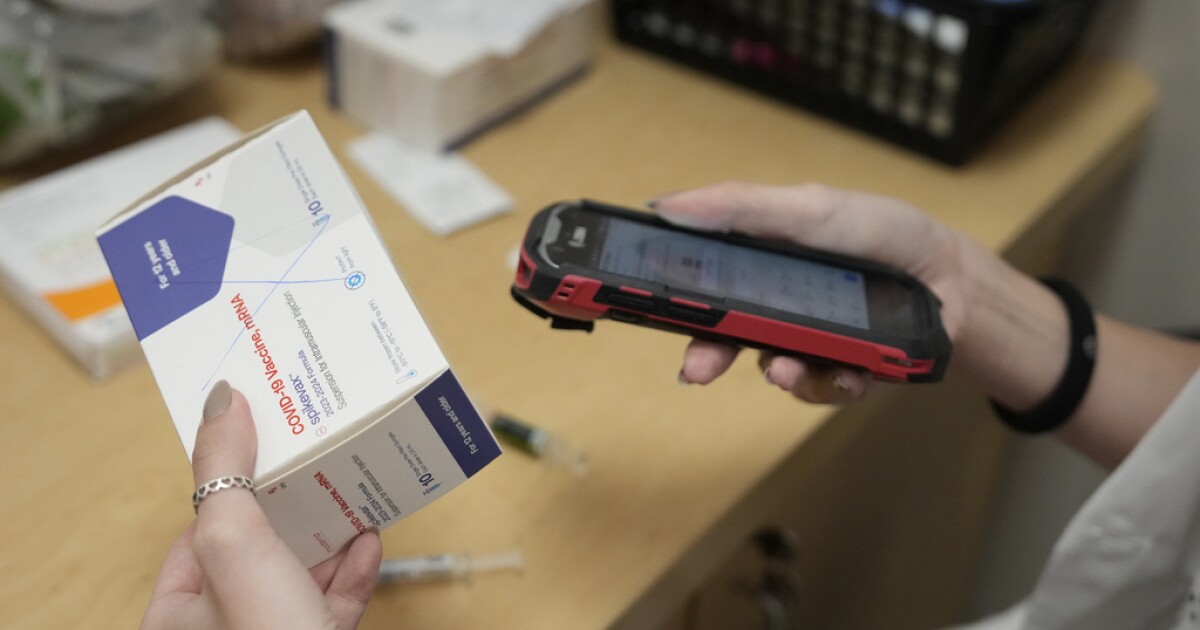

COVID-19 vaccines may be linked to unexplained vaginal bleeding in women without regular periods, according to a study published Tuesday in Science Advances.
Kristine Blix, the lead study author from the Norwegian Institute of Public Health in Oslo, Norway, and her co-authors studied 21,000 national survey responses from postmenopausal and perimenopausal women as well as premenopausal women without regular periods due to hormonal contraceptives.
THE LEFT’S THOUGHT POLICE ARE DESTROYING AMERICA’S COLLEGES
Of the whole group of women surveyed, over 10% experienced some form of unexplained vaginal bleeding, with over half of each group saying that the bleeding started in the four weeks after either dose of the two-dose COVID-19 vaccine.
Over 13% of premenopausal women experienced unexplained bleeding during a period of eight to nine months after the vaccine, with the risk of unexplained bleeding being three to five times higher than prior to vaccination. The risks for postmenopausal women increased by threefold.
Unexplained bleeding during or after menopause is a possible indicator of endometrial cancer or other serious conditions, such as vaginal or endometrial atrophy.
“Our findings of an increased risk across the reproductive stages raise the possibility that the mechanisms linking COVID-19 vaccination to unexpected vaginal bleeding may be similar across the stages,” Blix and her co-authors wrote, acknowledging that the study was unable to determine the causal mechanism of the association.
Changes in menstruation due to COVID-19 vaccination and infection have been anecdotally discussed and observed, but few scientific studies have confirmed the connection, with many attributing period changes or unexplained bleeding to stress and anxiety during the early stages of the pandemic.
In 2021, reproductive physician Victoria Male published an article in the BMJ calling for further investigation into the link between both COVID-19 infection or vaccination and changes in menstruation, citing more than 30,000 women in the United Kingdom who reported bleeding changes to their vaccine complications system.
“Menstrual changes have been reported after both mRNA and adenovirus vectored covid-19 vaccines, suggesting that, if there is a connection, it is likely to be a result of the immune response to vaccination rather than a specific vaccine component,” Male said at the time. Male also noted that other vaccines, such as that for the human papillomavirus, can trigger an immune response that “has also been associated with menstrual changes.”
CLICK HERE TO READ MORE FROM THE WASHINGTON EXAMINER
Male expressed at the time that the primary source of COVID-19 vaccine hesitancy for young women was a fear of future fertility problems. Blix and her colleagues voiced similar concerns, indicating that better monitoring of menstrual or unexplained bleeding symptoms ought to be an important portion of data collection during clinical trials.
“The most important contribution of this and other documentation will be that female bleeding patterns are included as end points, or monitored, in clinical trials of new vaccines — and perhaps even drug trials,” Blix said.





